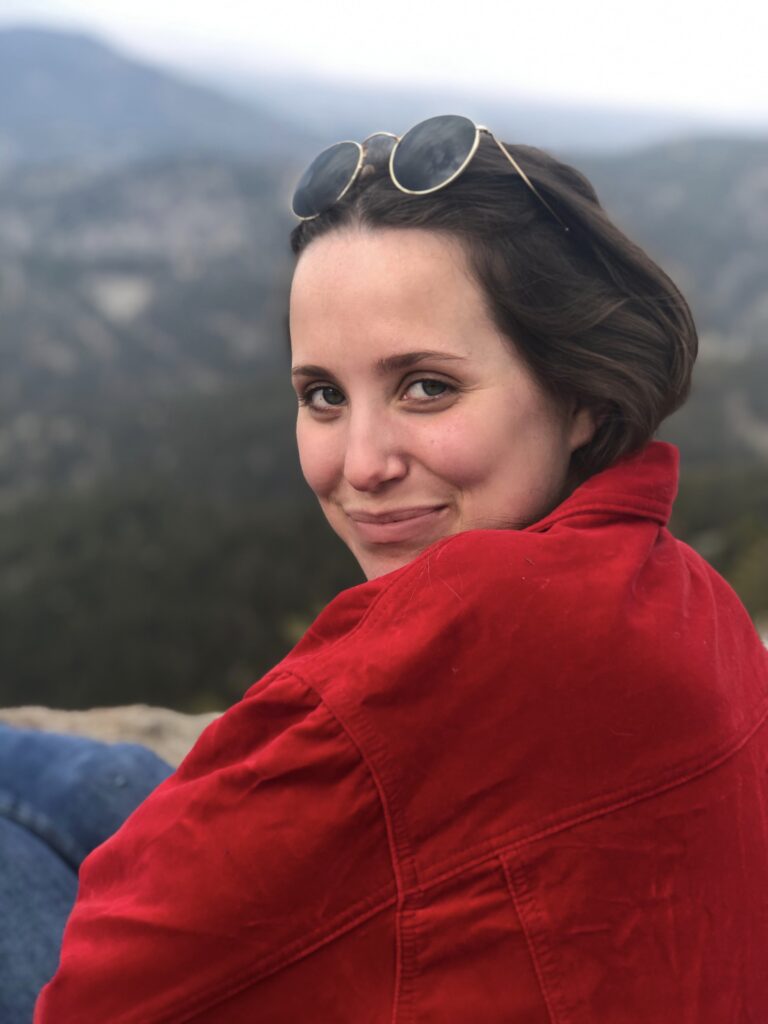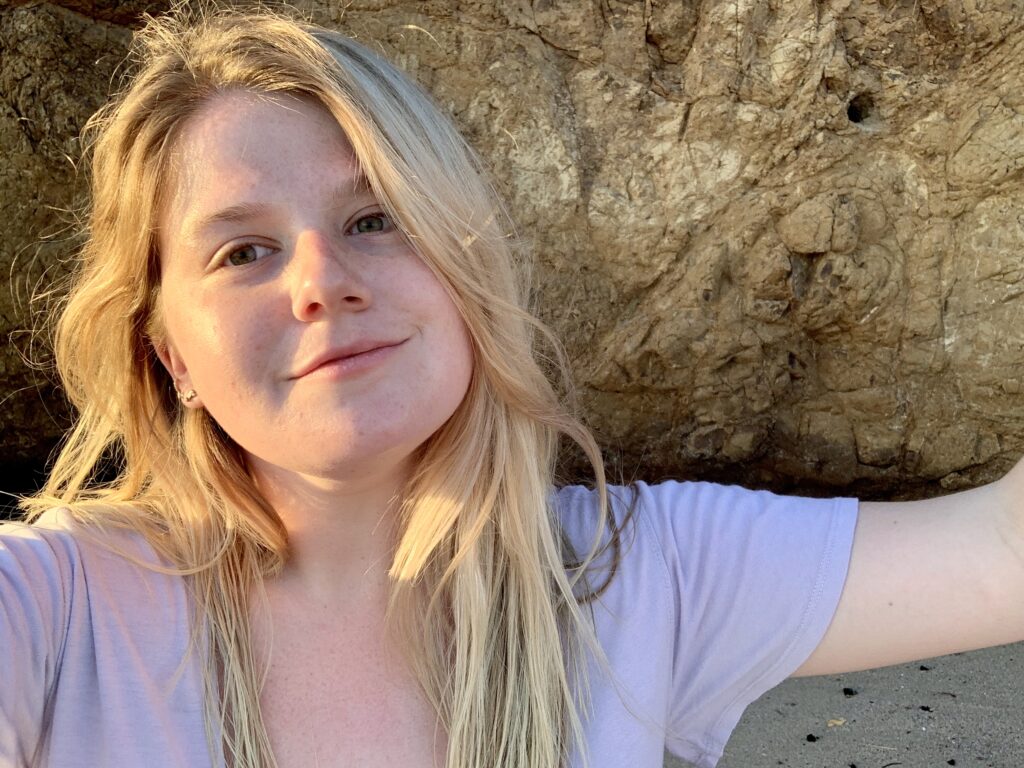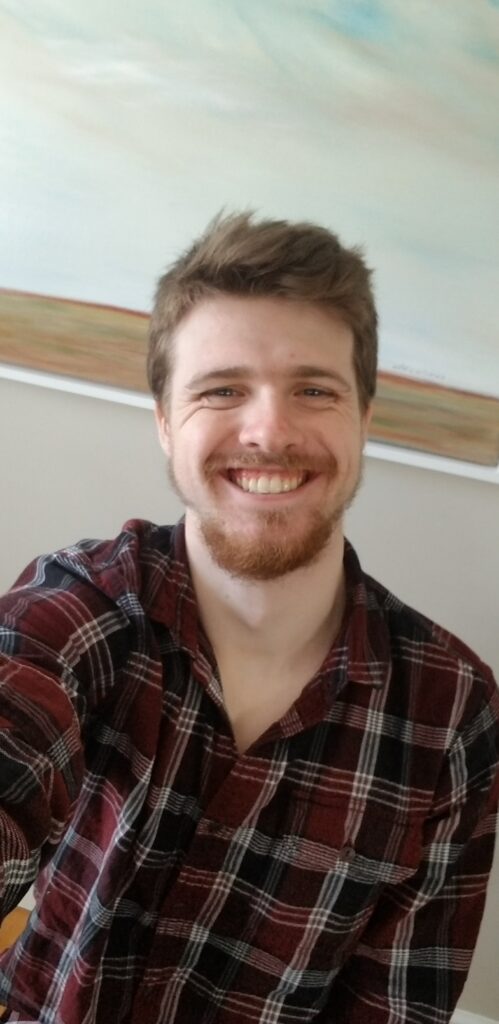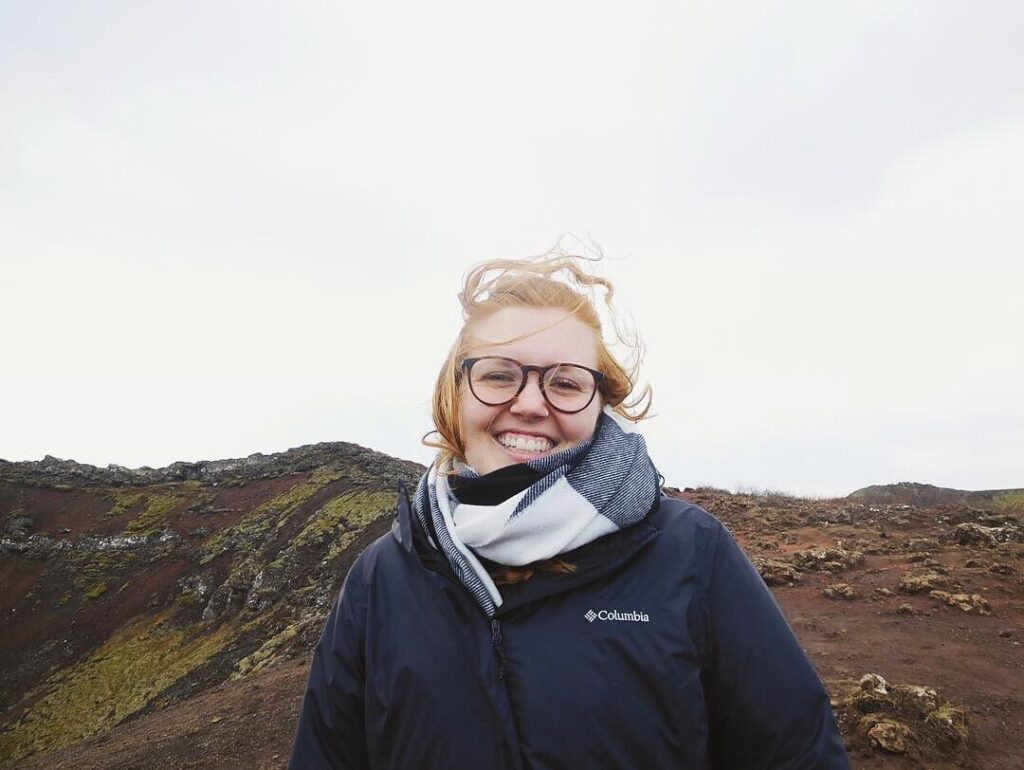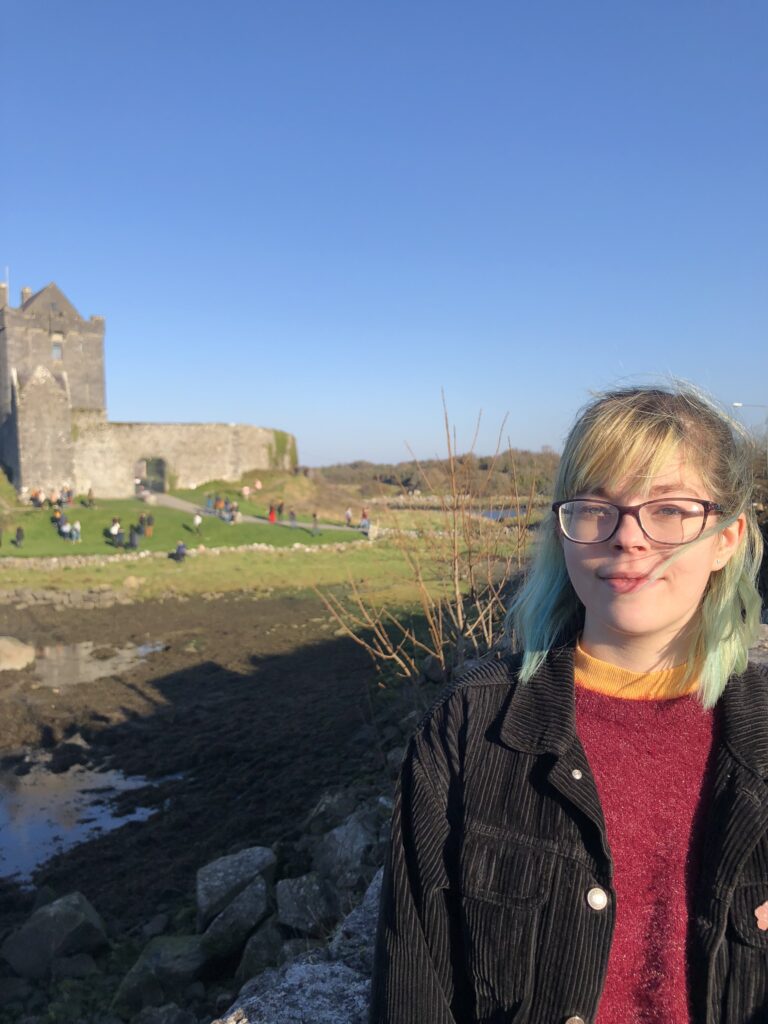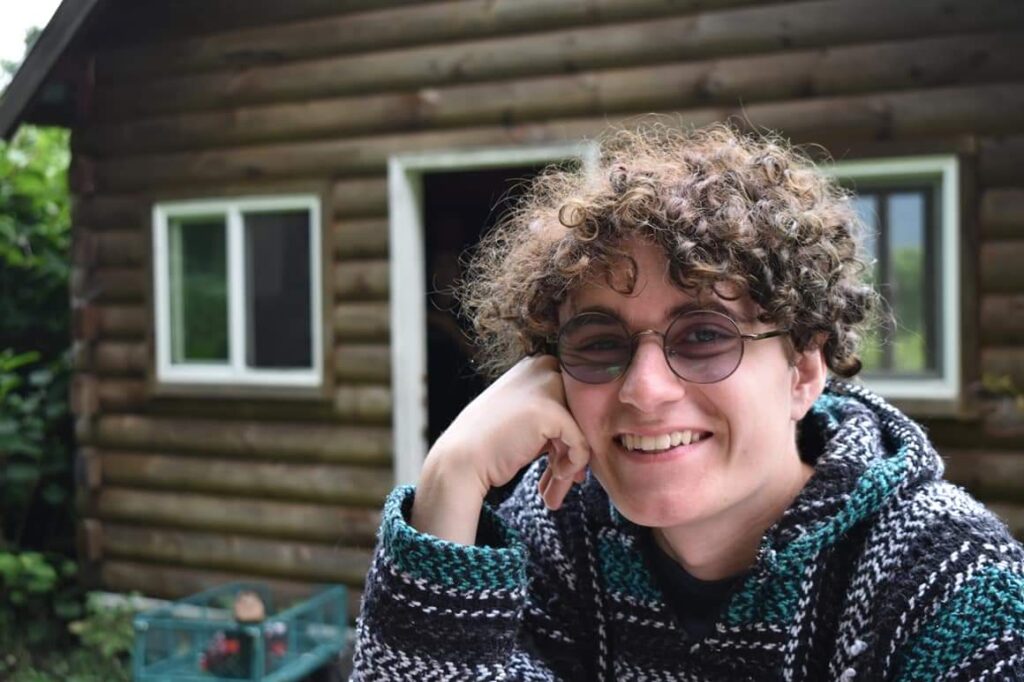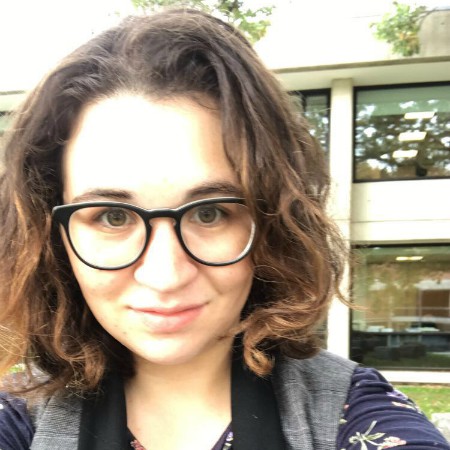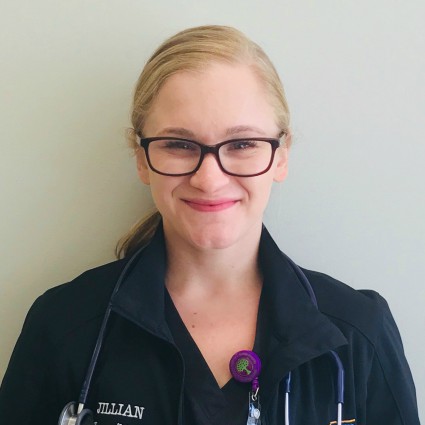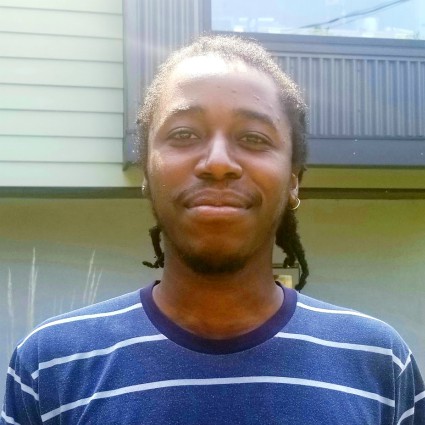a series about our graduating seniors
“Frequently, I considered religion classes–alongside copious amounts of coffee–to be my incredible coping mechanism during the pursuit of a STEM degree. But they were also so much more than that. They revolutionized my ability to write and to critically analyze all institutions of knowledge and power.”
–Caleb George-Hinnant
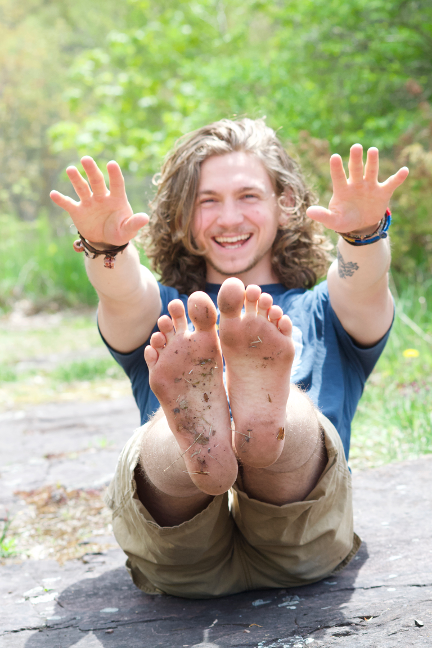
Why did you major in Religion?
I came to UVM as a biomedical engineering major. After spending my first semester in engineering classes, I took Comparing Religions with Dr. Ilyse Morgenstein Fuerst to fulfill my diversity requirement. This class convinced me to take more religion classes in tandem with a neuroscience degree which I had decided to transfer into.
Although understanding the brain had been a long-term goal of mine, religion classes were almost a vacation away from the hard path of studying synapses and biological processes. Religion classes were simultaneously some of my most challenging, intellectually stimulating, and motivating experiences at UVM.
Frequently, I considered religion classes–alongside copious amounts of coffee–to be my incredible coping mechanism during the pursuit of a STEM degree. But they were also so much more than that. They revolutionized my ability to write and to critically analyze all institutions of knowledge and power. I wish I could write a long essay about why I majored in religion. However, it dissolves to a love for writing, analyzing “what people do,” and having the opportunity to share that experience the brilliant minds at UVMREL.
Where do you imagine yourself in 10 years?
This is definitely the last question any senior feels prepared to answer. First and foremost, alive. Maybe there will be puppies?
Imagine a first-year student has asked your advice about REL courses. What’s the one she shouldn’t dream about missing? Why?
Take any and all of them. More importantly than that, take classes that analyze issues of religion. My two favorites were the two 200 level courses I took: African Gods/Western Museums and Religion, Nation, and State. But more importantly, get more than one opinion, you’ll need to be comparing a lot of conflicting arguments at 481 Main.
If you could write any book, what would it be?
A good one. I think I would really like to write about the brain, neuroplasticity, meditation, what people find meaningful, and how experience and self-reference shape the ways in which we believe ourselves to be “us.” Or possibly a book of opinions. Either way, I hope it helps somebody.
Any fond memories of 481 Main Street you want to share?
Snack times with Professor Borchert! Often that class did not feel like a class, rather a riveting hour in which we uncovered the hidden nature of our topics. Also all of the (previous semesters’) Reading Days, during which students from various classes came together to share in snacks and stress for final projects in the seminar room.
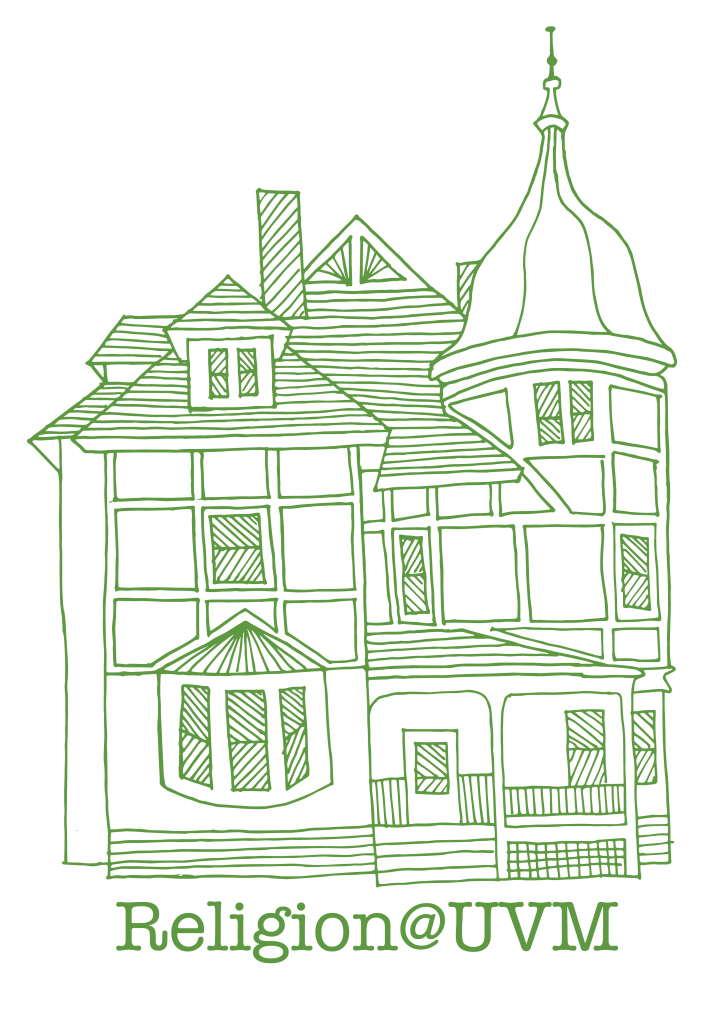
COVID-19 Bonus Question! You’re finishing up in the midst of the COVID-19 pandemic. Tell us something about that experience!
In the midst of a global crisis, barreling down the train tracks of peril, while sipping tea of calming thoughts in our couches seated in our homely homes each six feet apart on the expressway riding the curve, we look to our captain, sure that the egomaniac who is so disconnected from reality might look the other way so we may have the opportunity to steer the course straight.
Writing about global drama, systems of power, political injustice, colonialism, the neurotypical tragedies of addiction, tribal mentalities, and existential meanings of truth has never been so much fun in my comfy pants.

